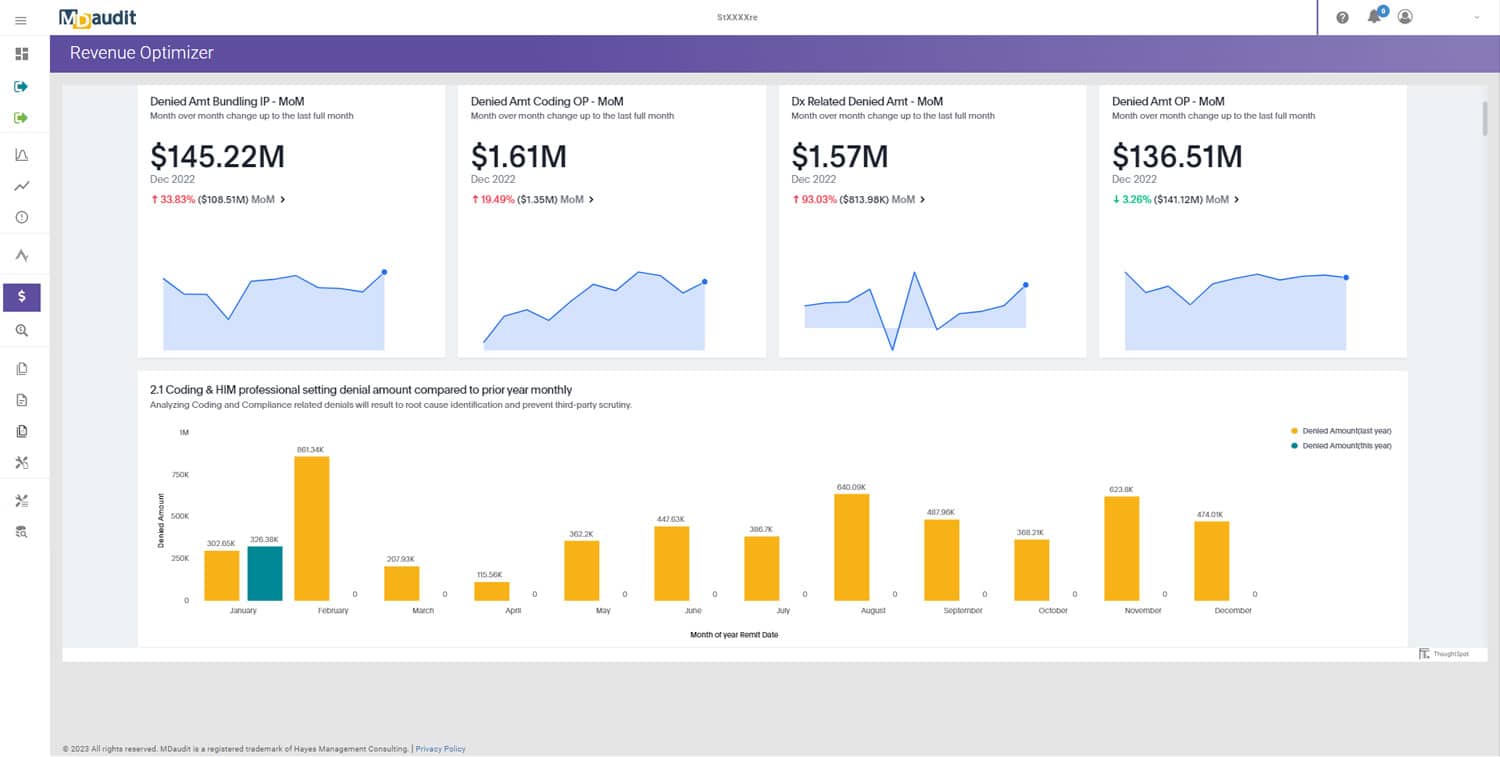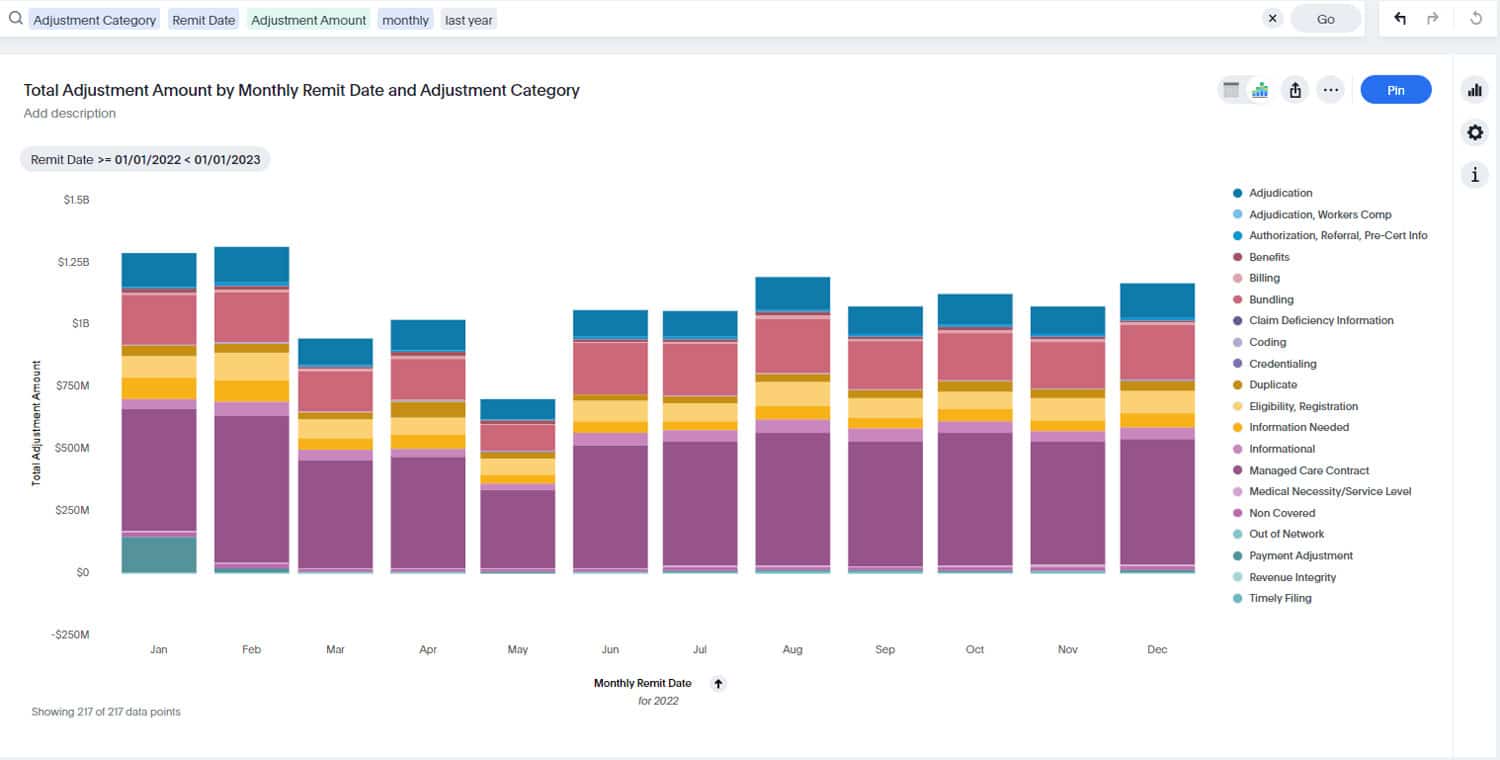Google the term “revenue integrity” and you get 790,000 results. Refining it to “revenue integrity in healthcare” narrows it down to 380,000 results. That still doesn’t help much. The fact is there isn’t one, universally accepted definition of the term.
One thing that isn’t in question is the importance of revenue integrity to healthcare organizations in the current difficult environment. Financial challenges headed the list of hospital leaders’ top concerns in 2016, according to the American College of Healthcare Executives annual survey. It was the twelfth consecutive year CEO’s identified finance issues as their most pressing worry.[1]
That should come as no surprise in a time when hospitals and physician practices are facing shrinking top and bottom lines. The crushing weight of financial worries continues to increase because of the many challenges organizations face in the uncertain healthcare landscape.
New value-based care financial models, increased payment responsibility for patients, more intense regulations and the auditing that goes with it and continued merger and acquisition activity are squeezing the resources of healthcare organizations and jeopardizing their overall financial health.
Which brings us back to revenue integrity. According to an HFMA Survey of 125 hospital and health system CFOs and revenue executives, only 44 percent of respondents say their organizations have established revenue integrity programs. This forward-thinking group has benefited significantly. The result of these revenue integrity programs has been a 68 percent increase in net collection, 61 percent overall gross revenue capture and 61 percent reduction in compliance risk. [2]
We know revenue integrity programs are effective, but there are still multiple definitions of what it is. Here are how some healthcare leaders view revenue integrity.
Not revenue cycle management
Revenue cycle management (RCM) has been a cornerstone of most healthcare organizations’ financial improvement and best practices strategy for many years. Brian Andrews, Senior Vice President of Change Healthcare, points out that RCM is different than revenue integrity.
“Most providers associate (RCM) with applying best practices for managing known processes,” Andrews wrote in a Health Management Technology article. “The revenue integrity approach ensures that providers can clearly identify, track, and realize the profit margins for the care they deliver.”
Andrews says RCM can’t uncover all revenue gaps because of workflow siloes. He says RCM is more of a reactive approach that deals with issues as they arise. Revenue integrity, on the other hand, employs a series of integrated processes that can “detect and eliminate many of the pitfalls in traditional revenue cycle processes.”[3]
Focus on processes and tools
Suzanne Lestina, revenue cycle technical director for the Healthcare Financial Management Association (HFMA), says revenue integrity means “the right revenue, right delivery, and right protocols to ensure right (accurate) reimbursement and compliance.”
The HFMA further says that revenue integrity is meant to prevent recurrence of issues that can cause revenue leakage, revenue degradation, and compliance risk. Integrity is the consistency of actions, values, methods, measures, principles, expectations and outcomes. Integrity is measured by the ability to achieve one’s own goals. The HFMA asserts revenue integrity can only be achieved with the proper processes, tools, and related expertise aimed at effectively pricing, charging, and coding for services and supplies related to patient care.[4]
According to Kristi Morris, Director, Revenue Integrity Services at Besler Consulting, revenue integrity includes “ensuring compliance, coding accuracy, appropriate charge capture and reasonable pricing for services provided.”
She also makes the distinction between RCM and revenue integrity stressing that revenue cycle teams focus on “identifying issues that may hold up a bill, resolving those issues and getting the bill out the door as soon as possible.” This is different from a revenue integrity program that centers on “educating staff and proactively identifying workflow issues.”[5]
The Hayes approach to revenue integrity
Hayes believes that revenue integrity is a holistic approach that takes a broad view of your revenue streams to connects the entire process and ensure you get paid for everything you do, and keep it. Revenue integrity it is identifying and correcting the root causes of process issues rather than simply fixing transaction errors. Accomplishing that means providing professional services, subject matter experts and tools that drive operational efficiency, compliance adherence and maximum reimbursement opportunities.
However you define it, it’s clear that maintaining your revenue integrity is crucial. Focusing on efficient revenue cycle management is a good start, but to ensure success, you must take the next step to maintain and strengthen the revenue integrity of your organization.
[1] Survey: Healthcare Finance, Safety and Quality Cited by CEO’s as Top Issues Confronting Hospitals in 2016, American College of Healthcare Executives press release, January 31, 2017.
[2] The Future of the Revenue Cycle, HFMA Magazine, June 2017
[3] Revenue Integrity: A better reimbursement strategy, by Brian Andrews, Senior Vice President & GM, Revenue Discovery Advocate, Change Healthcare, Health Management Technology, July 20, 2016
[4] Revenue Integrity in Healthcare, Craneware website
[5] Revenue Integrity: What it is and how you can sustain a high performing revenue integrity team, by Kristi Morris, Director, Revenue Integrity Services, Besler Consultants








